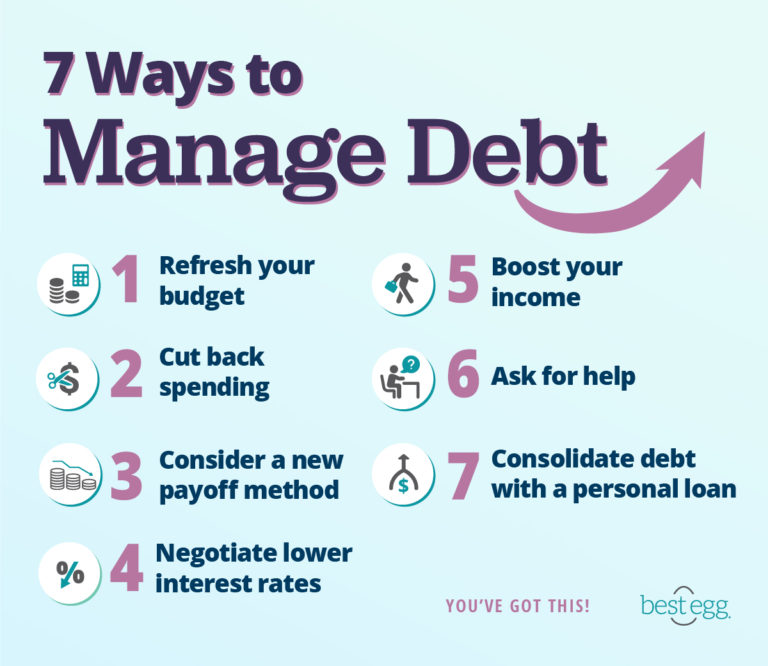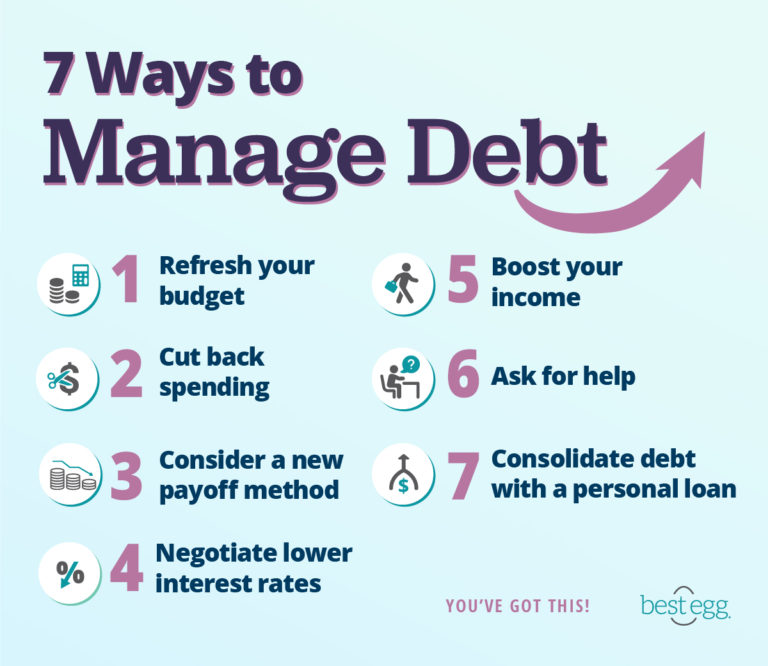Taking Control of Your Finances: Top Tips for Managing Debt Effectively

Are you tired of living paycheck to paycheck, with debt collectors knocking on your door? Do you dream of financial freedom, where you can spend your money on the things you love, not just on interest payments? You’re not alone. Millions of people around the world struggle with debt, but the good news is that there is a way out.
In this article, we’ll share our top tips for managing debt effectively, so you can take control of your finances and start building a brighter financial future.
Understand Your Debt
Before you can start managing your debt, you need to understand it. Take a close look at your financial situation and make a list of all your debts, including:
- Credit card debt
- Personal loans
- Mortgage
- Student loans
- Overdrafts
Note down the balance, interest rate, and minimum payment for each debt. This will help you see the big picture and prioritize your debts.
Create a Budget
A budget is a powerful tool for managing debt. By tracking your income and expenses, you can see where your money is going and make adjustments to free up more cash to put towards your debt. Here are some tips for creating a budget:
- Start by tracking your income and expenses for a month to see where your money is going
- Make a list of your essential expenses, such as rent/mortgage, utilities, and food
- Cut back on non-essential expenses, such as dining out or entertainment
- Use the 50/30/20 rule: 50% of your income for essential expenses, 30% for non-essential expenses, and 20% for saving and debt repayment

Prioritize Your Debts
Now that you have a budget in place, it’s time to prioritize your debts. There are two popular methods for prioritizing debt:
- Debt Snowball: Pay off your debts one by one, starting with the smallest balance first. This method provides a psychological boost as you quickly pay off smaller debts and see progress.
- Debt Avalanche: Pay off your debts one by one, starting with the highest interest rate first. This method saves you the most money in interest payments over time.
Choose the method that works best for you, or consider a combination of both.
Pay More Than the Minimum
Paying more than the minimum payment on your debts can save you thousands of dollars in interest payments over time. Consider the following:
- Pay extra: Try to pay as much as possible towards your debts each month.
- Use windfalls: Take advantage of unexpected windfalls, such as tax refunds or bonuses, to make extra payments.
- Consider bi-weekly payments: Instead of making one monthly payment, try making a half payment every two weeks. This can result in 26 payments per year, rather than 12.
Consolidate Your Debt
If you have multiple debts with high interest rates, consider consolidating them into one loan with a lower interest rate. This can simplify your payments and save you money on interest.
- Balance transfer: If you have good credit, consider transferring your credit card balances to a new card with a 0% interest rate.
- Personal loan: Consider taking out a personal loan with a lower interest rate to consolidate your debt.
- Debt consolidation program: Consider working with a credit counseling agency to consolidate your debt.
Negotiate with Creditors
If you’re struggling to make payments, consider negotiating with your creditors. Here are some tips:
- Communicate: Reach out to your creditors to explain your situation and ask for help.
- Request a temporary reduction: Ask for a temporary reduction in payments or interest rates.
- Consider a settlement: If you’re unable to pay the full amount, consider negotiating a settlement.
Avoid New Debt
While you’re paying off your debt, it’s essential to avoid taking on new debt. Here are some tips:
- Cut up your credit cards: Avoid using credit cards while you’re paying off debt.
- Avoid new loans: Avoid taking out new loans or credit while you’re paying off debt.
- Create an emergency fund: Build an emergency fund to avoid going into debt when unexpected expenses arise.
Stay Motivated
Paying off debt can be a long and challenging process, but staying motivated is key. Here are some tips:
- Celebrate milestones: Celebrate each debt you pay off, no matter how small.
- Find a support system: Share your goals with a friend or family member and ask for their support.
- Remind yourself of your goals: Keep your goals in mind and remind yourself why you’re working to pay off debt.
Conclusion
Managing debt effectively requires discipline, patience, and persistence. By following these top tips, you can take control of your finances and start building a brighter financial future. Remember to stay motivated, celebrate your milestones, and avoid new debt while you’re paying off your existing debt. With time and effort, you can achieve financial freedom and create a life of abundance and prosperity.
Share Your Success
Have you successfully paid off debt? Share your story and inspire others to take control of their finances. Share this article with a friend or family member who may be struggling with debt. Together, we can create a community of people committed to achieving financial freedom.
Share this article on social media and help us spread the word about the importance of managing debt effectively.

